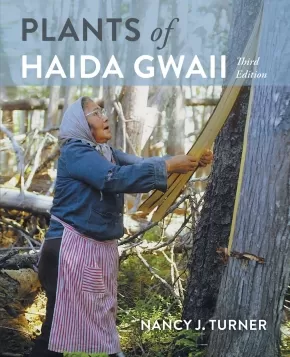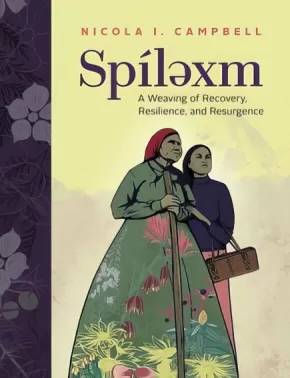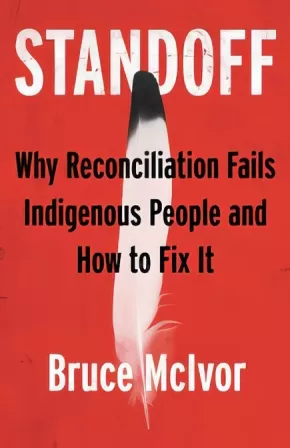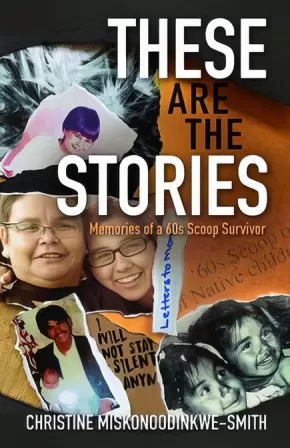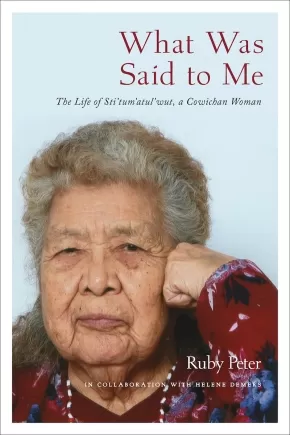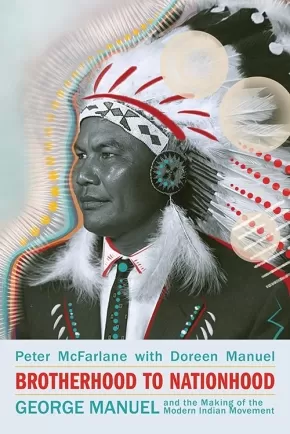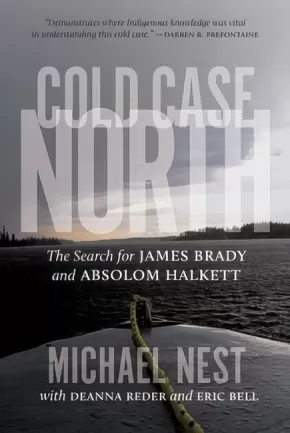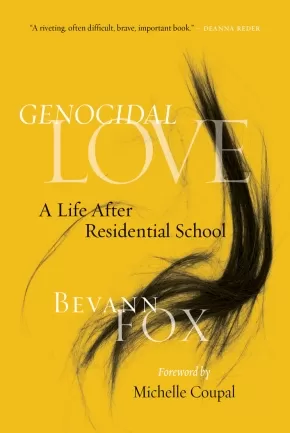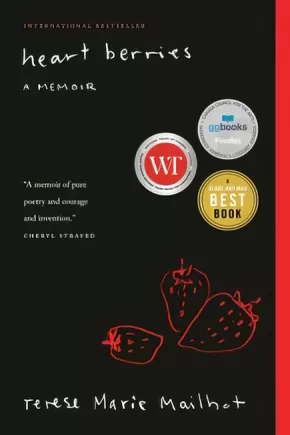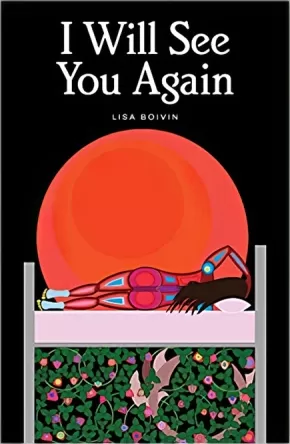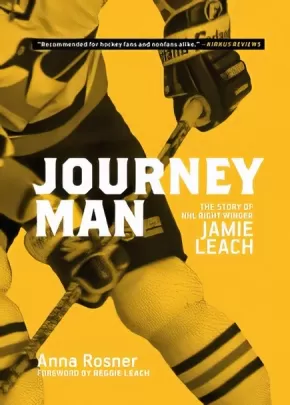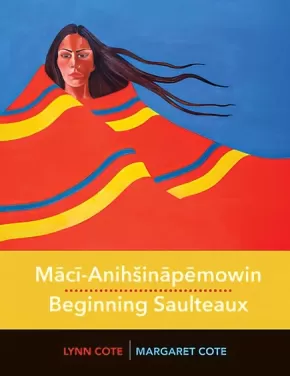
First Nations
136
-
150
of
244 Results;
Sort By
Go To
of 17
Plants of Haida Gwaii: Third Edition
$29.95
Format:
Paperback
Text Content Territories:
Indigenous Canadian; First Nations; Haida;
ISBN / Barcode: 9781550179149
Synopsis:
Synopsis:
For many thousands of years the lands and waters of Haida Gwaii have been home to the Haida. Plants of Haida Gwaii, written with the cooperation and collaboration of Haida knowledge holders and botanical experts, is a detailed and insightful record of the traditional uses of over 150 species of native plants. Moreover, it explains the systems of knowledge and understanding that enabled the Haida to use the resources of their islands sustainably from one generation to the next over millennia.
The Haida names of these plants indicate their importance, as do the many narratives featuring them. From the ts’uu—massive western red-cedars—of the forests which provide wood used for canoes, house posts, poles and boxes, and bark carefully harvested for weaving mats, baskets and hats, to the ngaal—tough, resilient fronds of giant kelp—used to harvest herring eggs, the botanical species used by the Haida are found from the ocean to the mountain tops, and are as important today as ever before. With over 250 photographs and illustrations, this book is both beautiful and informative.
Additional Information
272 pages | 7.50" x 9.25"
Authenticity Note: As there are contributions from Haida knowledge holders, this work has been labelled as containing authentic Indigenous text. It is up to readers to determine if this work is authentic for their purposes.
Spílexm: A Weaving of Recovery, Resilience, and Resurgence
$32.00
Format:
Hardcover
Text Content Territories:
Indigenous Canadian; First Nations; Salish; Interior Salish; Nlaka'pamux (Thompson); Syilx (Okanagan); Métis;
Grade Levels: 12; University/College;
ISBN / Barcode: 9781553799351
Synopsis:
Synopsis:
In this extraordinary memoir, best-selling author Nicola I. Campbell deftly weaves rich poetry and vivid prose into a story basket of memories orating what it means to be an intergenerational survivor of Indian Residential Schools.
If the hurt and grief we carry is a woven blanket, it is time to weave ourselves anew. We can’t quit. Instead, we must untangle ourselves from the negative forces that have impacted our existence as Indigenous people.
Similar to the “moccasin telegraph,” Spíləxm are the remembered stories, also “events or news” in the Nłeʔkepmx language. These stories were often shared over tea, in the quiet hours between Elders. Rooted within the British Columbia landscape, and with an almost tactile representation of being on the land and water, Spíləxm explores resilience, reconnection, and narrative memory through stories.
Captivating and deeply moving, this exceptional memoir tells of one Indigenous woman’s journey of overcoming adversity and colonial trauma to find strength and resilience through creative works and traditional perspectives of healing, transformation, and resurgence.
Reviews
"This is a terrific tale, peppered with some lovely poetry and deep philosophical convictions: raise your arms in strength and humility. The Nations of British Columbia practise this every day. We commit to strength and humility. We are humble before Star Nations and strong for one another. Nicola Campbell gets this. She is descended from two distinct Indigenous peoples: those that hold their arms and those that serve one another. Nicola braids these two cultures together and bequeaths the result to all of us and to the world. Loaded with history, rich in story, and lovely in its poetics." — Si’Yam, Lee Maracle, author
Additional Information
304 pages | 6.50" x 8.50" | Hardcover
Standoff: Why Reconciliation Fails Indigenous People and How to Fix It
$21.95
Format:
Paperback
Text Content Territories:
Indigenous Canadian;
Grade Levels: University/College;
ISBN / Barcode: 9780889714205
Synopsis:
Synopsis:
Faced with a constant stream of news reports of standoffs and confrontations, Canada’s “reconciliation project” has obviously gone off the rails. In this series of concise and thoughtful essays, lawyer and historian Bruce McIvor explains why reconciliation with Indigenous peoples is failing and what needs to be done to fix it.
Widely known as a passionate advocate for Indigenous rights, McIvor reports from the front lines of legal and political disputes that have gripped the nation. From Wet’suwet’en opposition to a pipeline in northern British Columbia, to Mi’kmaw exercising their fishing rights in Nova Scotia, McIvor has been actively involved in advising First Nation clients, fielding industry and non-Indigenous opposition to true reconciliation, and explaining to government officials why their policies are failing.
McIvor’s essays are honest and heartfelt. In clear, plain language he explains the historical and social forces that underpin the development of Indigenous law, criticizes the current legal shortcomings and charts a practical, principled way forward.
By weaving in personal stories of growing up Métis on the fringes of the Peguis First Nation in Manitoba and representing First Nations in court and negotiations, McIvor brings to life the human side of the law and politics surrounding Indigenous peoples’ ongoing struggle for fairness and justice. His writing covers many of the most important issues that have become part of a national dialogue, including systemic racism, treaty rights, violence against Indigenous people, Métis identity, the United Nations Declaration on the Rights of Indigenous People (UNDRIP) and the duty to consult.
McIvor’s message is consistent and powerful: if Canadians are brave enough to confront the reality of the country’s colonialist past and present and insist that politicians replace empty promises with concrete, meaningful change, there is a realistic path forward based on respect, recognition and the implementation of Indigenous rights.
Additional Information
208 pages | 5.50" x 8.50" | Paperback
The Power of Style: How Fashion and Beauty Are Being Used to Reclaim Cultures
$14.95
Format:
Paperback
Text Content Territories:
Indigenous Canadian;
ISBN / Barcode: 9781773214917
Synopsis:
Synopsis:
Style is not just the clothes on our backs—it is self-expression, representation, and transformation.
As a fashion-obsessed Ojibwe teen, Christian Allaire rarely saw anyone that looked like him in the magazines or movies he sought out for inspiration. Now the Fashion and Style Writer for Vogue, he is working to change that—because clothes are never just clothes. Men’s heels are a statement of pride in the face of LGTBQ+ discrimination, while ribbon shirts honor Indigenous ancestors and keep culture alive. Allaire takes the reader through boldly designed chapters to discuss additional topics like cosplay, makeup, hijabs, and hair, probing the connections between fashion and history, culture, politics, and social justice.
Reviews
“A vibrant read about the connections between fashion, culture, and social justice.” — Kirkus Reviews, 02/23/21
“The book to appeal to a wide age range. It is important that readers of all ages be given the opportunity to learn that there are others who have had the same or similar experiences of feeling that they were different from their peers because of the way that they looked or dressed. Highly Recommended.” — CM Reviews, 02/12/21
“Dazzling and empowering . . . Fab drag queens, genderqueer and BIPOC YouTubers demoing makeup, plus-size and gender-bending cosplayers, men wearing high heels and fem fashion—they’re all here, a proud and dazzling explosion of confetti transforming the landscape.” — Booklist, *starred review, 03/02/21
Educator Information
Recommended for ages 12+
Common Core Correlations
CCSS.ELA-Literacy Strand-Reading literature:
W.6.1,1a,1b,1c,1d,1e
SL.6.1,1a,1b,1c,1d,1
RI.6.1,2,3,4,5,6,7,8
L.6.1,1a,2,2a,2b,3,3
Reading Level: Lexile 1070L
The Power of Style is a Top Ten Quick Picks for Reluctant Young Adult Readers, YALSA
Additional Information
96 pages | 8.00" x 10.00"
These Are the Stories: Memories of a 60s Scoop Survivor
$22.00
Format:
Paperback
Text Content Territories:
Indigenous Canadian; First Nations; Anishinaabeg; Ojibway; Saulteaux;
Reading Level: N/A
ISBN / Barcode: 9781928120278
Synopsis:
Synopsis:
These are the Stories is a memoir presented in short chapters, comprising the life of a survivor of the Sixties Scoop. Christine Miskonoodinkwe Smith reveals her experiences in the child welfare system and her journey towards healing in various stages of her life. As an adult, she was able to reconnect with her birth mother. Though her mother passed shortly afterward, that reconnection allowed the author to finally feel "complete, whole, and home." The memoir details some of the author's travels across Canada as she eventually made a connection with the Peguis First Nation in Manitoba.
A memoir in the vein of Colleen Hele Cardinal's Raised Somewhere Else and Alicia Elliot's A Mind Spread Out On the Ground, These are the Stories is an inspirational and courageous telling of a life story.
Additional Information
170 pages | 5.50" x 8.50" | Paperback
What Comes From Spirit: Richard Wagamese Selected (HC)
$26.95
Editors:
Format:
Hardcover
Text Content Territories:
Indigenous Canadian; First Nations; Anishinaabeg; Ojibway; Wabaseemoong First Nation;
Reading Level: N/A
ISBN / Barcode: 9781771622752
Synopsis:
Synopsis:
Richard Wagamese, one of Canada’s most celebrated Indigenous authors and storytellers, was a writer of breathtaking honesty and inspiration. Always striving to be a better, stronger person, Wagamese shared his journey through writing, encouraging others to do the same.
Following the success of Embers, which has sold almost seventy thousand copies since its release in 2016, this new collection of Wagamese’s non-fiction works, with an introduction by editor Drew Hayden Taylor, brings together more of the prolific author’s short writings, many for the first time in print, and celebrates his ability to inspire. Drawing from Wagamese’s essays and columns, along with preserved social media and blog posts, this beautifully designed volume is a tribute to Wagamese’s literary legacy.
Reviews
"Treasure these words. Honour his thoughts. But don’t read it too fast. Soak it in. Enjoy every morsel. Linger on each page because every paragraph has nuggets of understanding. Lines of wisdom. Stories to appreciate." — Drew Hayden Taylor
Additional Information
176 pages | 5.50" x 8.00" | Hardcover
What Was Said to Me: The Life of Sti'tum'atul'wut, a Cowichan Woman
$24.95
Format:
Paperback
Text Content Territories:
Indigenous Canadian; First Nations; Salish; Coast Salish; Cowichan;
Grade Levels: 12; University/College;
ISBN / Barcode: 9780772679383
Synopsis:
Synopsis:
A narrative of resistance and resilience spanning seven decades in the life of a tireless advocate for Indigenous language preservation.
Life histories are a form of contemporary social history and convey important messages about identity, cosmology, social behaviour and one’s place in the world. This first-person oral history—the first of its kind ever published by the Royal BC Museum—documents a period of profound social change through the lens of Sti’tum’atul’wut—also known as Mrs. Ruby Peter—a Cowichan elder who made it her life’s work to share and safeguard the ancient language of her people: Hul’q’umi’num’.
Over seven decades, Sti’tum’atul’wut mentored hundreds of students and teachers and helped thousands of people to develop a basic knowledge of the Hul’q’umi’num’ language. She contributed to dictionaries and grammars, and helped assemble a valuable corpus of stories, sound and video files—with more than 10,000 pages of texts from Hul’q’umi’num’ speakers—that has been described as “a treasure of linguistic and cultural knowledge.” Without her passion, commitment and expertise, this rich legacy of material would not exist for future generations.
In 1997 Vancouver Island University anthropologist Helene Demers recorded Sti’tum’atul’wut’s life stories over nine sessions. The result is rich with family and cultural history—a compelling narrative of resistance and resilience that promises to help shape progressive social policy for generations to follow.
Additional Information
240 pages | 6.00" x 9.00"
Where the Power Is: Indigenous Perspectives on Northwest Coast Art
$65.00
Format:
Hardcover
Text Content Territories:
Indigenous Canadian;
Reading Level: N/A
ISBN / Barcode: 9781773270517
Synopsis:
Synopsis:
Where the Power Is: Indigenous Perspectives on Northwest Coast Art is a landmark volume that brings together over eighty contemporary Indigenous knowledge holders with extraordinary works of historical Northwest Coast art, ranging from ancient stone tools to woven baskets to carved masks and poles to silver jewellery. First Nations Elders, artists, scholars, and other community members visited the Museum of Anthropology at the University of British Columbia to connect with these objects, learn from the hands of their ancestors, and share their thoughts and insights on how these belongings transcend the category of “art” or “artifact” to embody vital ways of knowing and being in the world. Texts by the authors sketch the provenance of the objects, and, in dialogue with the commentators, engage in critical and necessary conversations around the role of museums that hold such collections.
The voices within are passionate, enlightening, challenging, and humorous. The commentators speak to their personal and family histories that these objects evoke, the connections between tangible and intangible culture, and how this “art” remains part of Northwest Coast Indigenous peoples’ ongoing relationships to their territories and political governance. Accompanied by over 300 contemporary and historical photographs, this is a vivid and powerful document of Indigenous experiences of reconnection, reclamation, and return.
Featuring contributions by:
ʼLiyaaʼmlaxha—Leonard Alexcee, Goldʼm Nitsʼk—Wii Gandoox—Mona Alexcee, Widiimas—Peter Alexcee, Kʼodalagalis—Byron Alfred, Skwiixta—Karen Anderson, Chaudaquock—Vera Asp, Don Bain, Stan Bevan, Jo Billows, Dempsey Bob, Raymond Boisjoly, Naxshageit—Alison Bremner, Wákas—Irene Brown, Tʼaakeit Gʼaayaa—Corey Bulpitt, Vanessa Campbell, Jisgang—Nika Collison, Nalaga—Donna Cranmer, Gloria Cranmer Webster, Joe David, Guud san glans—Robert Davidson, ʼWalas Gwaʼyam—Beau Dick, Idtaawgan—Mervin Dunn, Sharon Fortney, Yéil Ya-Tseen—Nicholas Galanin, qiyəplenəxw—Howard E. Grant, sʔəyəłəq—Larry Grant, taχwtəna:t—Wendy Grant-John, Müsiiʼn—Phil Gray, Tʼuuʼtk—Robin R.R. Gray, Wii Gwinaał—Henry Green, secəlenəxw—Morgan Guerin, Haaʼyuups, KC (Kelsey) Hall, J̌i:ƛʼmɛtəm—Harold Harry, qoqʼwɛssukwt—Katelynn Harry, 7idansuu—James M. Hart, YaʼYa Heit, Kwakwabalasamayi Hamasaka—Alan Hunt, Corrine Hunt, Tłaliłilaʼogwa—Sarah Hunt, Tsēmā Igharas, Pearl Innis, Haʼhl Yee—Doreen Jensen, Kwankwanxwaligi—Robert Joseph, kwəskwestən—James Kew, Gigaemi Kukwits, Peter Morin, Nugwam ʼMaxwiyalidzi—Kʼodi Nelson, ʼTayagilaʼogwa—Marianne Nicolson, Gwiʼmolas—Ryan Nicolson, Jaad Kuujus—Kwaxhiʼlaga—Meghann OʼBrien, Ximiq—Dionne Paul, A-nii-sa-put—Tim Paul, Xwelíqwiya—Rena Point Bolton, Oqwiʼlowgʼwa—Kim Recalma-Clutesi, Skeena Reece, Nʼusi—Ian Reid, Greg A. Robinson, Siʼt Kwuns—Isabel Rorick, Maximus (Max) Savey, Anaht pi ya tuuk—Sheila Savey, Linda Smith, Xsim Ganaaʼw—Laurel Smith Wilson, θəliχwəlwət—Debra Sparrow, səlisəyeʔ—Leona Sparrow, Wedłidi Speck, Marika Echachis Swan, Simʼoogit Gawaakhl of Wilps Luuyaʼas—Norman Tait, Snxakila—Clyde Tallio, Nakkita Trimble, Xˇùsəmdas Waakas—Ted Walkus, Nuuwagawa—Evelyn Walkus Windsor, Hiłamas—William Wasden, Jr., Tsamiianbaan—William White, Tania Willard, Skiljaday—Merle Williams, Gid7ahl-Gudsllaay Lalaxaaygans—Terri-Lynn Williams-Davidson, Tʼɬaɬbaʼlisameʼ—Tʼɬalis—Mikael (Mike) Willie, Lyle Wilson, Nathan Wilson, and Michael Nicoll Yahgulanaas.
Additional Information
384 pages | 10.31" x 11.96" | Hardcover
Brotherhood to Nationhood: George Manuel and the Making of the Modern Indian Movement
$32.95
Format:
Paperback
Text Content Territories:
Indigenous Canadian; First Nations; Salish; Interior Salish; Secwepemc (Shuswap);
ISBN / Barcode: 9781771135108
Synopsis:
Synopsis:
Charged with fresh material and new perspectives, this updated edition of the groundbreaking biography From Brotherhood to Nationhood brings George Manuel and his fighting tradition into the present.
George Manuel (19201989) was the strategist and visionary behind the modern Indigenous movement in Canada. A three-time Nobel Peace Prize nominee, he laid the groundwork for what would become the Assembly of First Nations and was the founding president of the World Council of Indigenous Peoples. Authors Peter McFarlane and Doreen Manuel follow him on a riveting journey from his childhood on a Shuswap reserve through three decades of fierce and dedicated activism.
In these pages, an all-new foreword by celebrated Mi'kmaq lawyer and activist Pam Palmater is joined by an afterword from Manuel’s granddaughter, land defender Kanahus Manuel. This edition features new photos and previously untold stories of the pivotal roles that the women of the Manuel family played and continue to play in the battle for Indigenous rights.
Reviews
“Brotherhood to Nationhood is more than just a biography of the life of George Manuel; it demonstrates the roots of an Indigenous internationalism and political theory that is grounded in the ethics, knowledge, and practices of the Secwepemc people.” – Leanne Betasamosake Simpson, author of As We Have Always Done
Educator Information
Table of Contents
Foreword - Dr. Pamela Palmater
Preface - Peter McFarlane
Preface - Doreen Manuel
Part I. The Neck of the Chicken
1. Paradise, Paradise Lost, 1960
2. The Hard-Luck Shuswap Kid, 1920–1932
3. White Plague, Red Victims, 1932–1954
4. Local Agitator to Provincial Leader, 1955–1960
5. A Future for Your Children, 1960–1963
Part II. Building the National Movement
6. Community Development and the Arthur Laing Gang, 1965–1967
7. Down the Garden Path: Chretien Andras Consultations, 1968–1969
8. From White Paper to Red Paper, 1969–1970
9. The National Chief
10. The National Indian Philosophy, 1971–1972
Part III. Indian Shogun
11. International Travels
12. Land Title and the James Bay Battle, 1972–1973
13. Red Power
14. Political Eruptions in British Columbia, 1975
15. A Voice for the Fourth World, 1975–1976
16. Back to British Columbia,1976–1977
17. The Peoples’ Movement, 1977–1979
18. Constitutional Express, 1980
Part IV. Final Days
19. European Express, 1981–1982
20. Passing the Torch, 1982–1989
Epilogue
Afterword - Kanahus Manuel
Additional Information
402 pages | 6.00" x 9.00" | Revised, 2nd Edition
Cold Case North: The Search for James Brady and Absolom Halkett
$24.95
Format:
Paperback
Text Content Territories:
Indigenous Canadian; First Nations; Cree (Nehiyawak); Métis;
Grade Levels: 12; University/College;
ISBN / Barcode: 9780889777491
Synopsis:
Synopsis:
For fans of true crime, an unsolved mystery of missing persons, police conspiracies, and private investigations in an Indigenous community in northern Canada.
Métis leader James Brady was one of the most famous Indigenous activists in Canada. A communist, strategist, and bibliophile, he led Métis and First Nations to rebel against government and church oppression. Brady’s success made politicians and clergy fear him, and he had enemies everywhere.
In 1967, while prospecting in Saskatchewan with Cree Band Councillor and fellow activist Absolom Halkett, both men vanished without a trace from their remote lakeside camp. For 50 years rumours swirled of secret mining interests, political intrigue, assassination, and murder. Cold Case North is the story of how a small team, with the help of a local Indigenous community, exposed police failure in the original investigation, discovered new clues and testimony, and gathered the pieces of the North’s most enduring missing persons puzzle.
Reviews
“This engrossing account charts the efforts of three dedicated people to determine the fate of two missing Indigenous men in the north of Canada. [...] Meticulously researched, this smoothly written tale of injustice showcases the authors’ tenacity and arouses the reader’s indignation. This is a scathing rebuke of the RCMP’s failure to take the case of missing Indigenous people seriously.” —Publisher's Weekly
“Like too many cases involving missing and murdered Indigenous people, authorities failed to ensure that Brady and Halkett’s deaths were properly investigated. This book helps get to the bottom of the fate of these two men, and demonstrates why investigators should never dismiss the knowledge of Indigenous peoples.” —Darren Prefontaine, author of Gabriel Dumont
“Cold Case North is part true crime thriller, part gripping mystery about the disappearance of Métis legend James Brady and Absolom Halkett in northern Saskatchewan. It is also about Indigenous knowledge, investigative incompetence, and the stuff of legend.” —Paul Seesequasis, author of Blanket Toss Under Midnight Sun
“A fascinating search for the truth, Cold Case North unravels the layers of a decades’ old mystery. It is about how communities hold knowledge for generations, and how missing loved ones are never forgotten.” —Katherena Vermette, author of River Woman and The Break
Additional Information
272 pages | 5.00" x 7.00"
Genocidal Love: A Life after Residential School
$21.95
Text Content Territories:
Indigenous Canadian; First Nations; Cree (Nehiyawak);
Grade Levels: 12; University/College;
ISBN / Barcode: 9780889777415
Synopsis:
Synopsis:
How can we heal in the face of trauma? How can we transform intergenerational pain into a passion for community and healing?
Presenting herself as “Myrtle,” residential school survivor and Indigenous television personality Bevann Fox explores essential questions by recounting her life through fiction. She shares memories of an early childhood filled with love with her grandparents—until she is sent to residential school at the age of seven. Her horrific experiences of abuse there left her without a voice, timid and nervous, never sure, never trusting, affecting her romantic relationships and family bonds for years to come.
This is the story of Myrtle battling to recover her voice. Genocidal Love is a powerful confirmation of the long-lasting consequences of residential school violence —and a moving story of finding a path towards healing.
Awards
- 2021 Indigenous Voices Awards winner for Published Prose in English: Creative Nonfiction and Life-Writing
Reviews
“A riveting, often difficult, brave, important book. ” —Deanna Reder, Chair, Department of Indigenous Studies, Simon Fraser University
“A riveting and courageous reflection. . . . Genocidal Love is unique in its detailed account of the often re-traumatizing effects of the legal and bureaucratic barriers of compensation programs predating the Truth and Reconciliation Commission. ” —Jesse Rae Archibald-Barber, editor of kisiskâciwan and co-editor of Performing Turtle Island
“Fox tears beauty from the jaws of genocide, daring to claim love beyond settler imaginings—love that nurtures decolonial futures and makes possible a more just world. ”—Sam McKegney, author of Magic Weapons and Masculindians
Educator Information
A forward from Michelle Coupal explains more about "Genocidal Love—a story that Bevann tells about herself outside the boundaries of what constitutes fiction and non-fiction".
Additional Information
256 pages | 5.00" x 7.00"
Heart Berries: A Memoir (PB)
$19.95
Format:
Paperback
Text Content Territories:
Indigenous Canadian; First Nations; Salish; Coast Salish; Sto:lo; Seabird Island;
ISBN / Barcode: 9780385691161
Synopsis:
Synopsis:
Guileless and refreshingly honest, Terese Mailhot's debut memoir chronicles her struggle to balance the beauty of her Native heritage with the often desperate and chaotic reality of life on the reservation.
Heart Berries is a powerful, poetic memoir of a woman's coming of age on the Seabird Island Indian Reservation in British Columbia. Having survived a profoundly dysfunctional upbringing only to find herself hospitalized and facing a dual diagnosis of Post Traumatic Stress Disorder and Bipolar II, Terese Mailhot is given a notebook and begins to write her way out of trauma. The triumphant result is Heart Berries, a memorial for Mailhot's mother, a social worker and activist who had a thing for prisoners; a story of reconciliation with her father--an abusive drunk and a brilliant artist--who was murdered under mysterious circumstances; and an elegy on how difficult it is to love someone while dragging the long shadows of shame.
Mailhot "trusts the reader to understand that memory isn't exact, but melded to imagination, pain and what we can bring ourselves to accept." Her unique and at times unsettling voice graphically illustrates her mental state. As she writes, she discovers her own true voice, seizes control of her story and, in so doing, reestablishes her connection to her family, to her people and to her place in the world.
Educator Information
This book is available in French: Petite Femme Montagne
Additional Information
144 pages | 5.00" x 7.50" | Paperback
I Will See You Again
$25.00
Artists:
Format:
Hardcover
Text Content Territories:
Indigenous Canadian; First Nations; Dene; Deninu K’ue ;
ISBN / Barcode: 9781553798552
Synopsis:
Synopsis:
When the author learns of the death of her brother overseas, she embarks on a journey to bring him home. Through memories and dreams of all they shared together and through her Dene traditions, she finds comfort and strength. The lyrical art and story leave readers with a universal message of hope and love.
Educator Information
Recommended for ages 12+ (Mature Picture Book)
In this emotional illustrated picture book, author and illustrator Lisa Boivin tells the story of the loss of her brother and the journey with her Dene traditions to find comfort and the strength to move on from her grief.
This book explores themes of death, memory, remembrance, comfort, and specifically Dene perspectives on death.
The author's deeply personal story is revealed through exquisite artwork and text that are grounded in her family's Dene culture.
Lisa Boivin's experiences as an artist and bioethicist inform her story, expressed in the Indigenous way of passing knowledge through images.
Additional Information
56 pages | 6.50" x 10.00" | Colour illustrations throughout
Journeyman: The Story of NHL Right Winger Jamie Leach
$14.95
Format:
Paperback
Text Content Territories:
Indigenous Canadian; First Nations; Anishinaabeg; Ojibway;
ISBN / Barcode: 9781773370545
Synopsis:
Synopsis:
Journeyman is a first-person biography of Ojibwe rightwinger Jamie Leach, son of the legendary NHL superstar Reggie Leach. Follow the fascinating hockey trajectory from his childhood years watching his father play for the Philadelphia Flyers, to Jamie’s first goal in the NHL.
Journeyman touches on Jamie’s summers on Lake Winnipeg, the World Junior Hockey Championships, his life in the minor leagues, and his eventual draft into the NHL as a Pittsburgh Penguin. Discover how some of hockey’s biggest stars such as Bobby Clarke, Jaromir Jagr, and Mario Lemieux influenced Jamie’s life.
Written in close consultation with Jamie and his mother, readers will learn about the struggles Jamie conquered, including his father’s alcoholism and his own crippling self-doubt.
A story of determination, heartbreak and perseverance.
Reviews
"This straightforward, inspiring account goes down easy and should appeal to most kids, especially skaters looking for role models." —Booklist
Educator Information
Recommended by the publisher for middle-grade readers 10+.
Forward by Reggie Leach.
Additional Information
104 pages | 5.00" x 7.00"
Mācī-Anihšināpēmowin / Beginning Saulteaux (10 in Stock) - ON SALE
$30.00 $34.95
Format:
Coil Bound
Text Content Territories:
Indigenous Canadian; First Nations; Anishinaabeg; Ojibway; Saulteaux;
ISBN / Barcode: 9780889777514
Synopsis:
Synopsis:
Mācī-Anihšināpēmowin / Beginning Saulteaux is an introductory look at one of the most widely spoken of all North American Indigenous languages, regionally known as Saulteaux, Ojibway, Ottawa (Odawa), Chippewa, and Algonquian. In an easy-to-use and easy-to-read series of lessons, both designed for self-study or for use in the classroom, Beginning Saulteaux will guide beginners through the language’s grammatical structures and spelling systems, as well as everyday terms and phrases. The book grounds the language in both traditional and contemporary contexts, and sheds light on the Saulteaux world view. For example, there is no word for good-bye in the language, so upon parting people will usually say Kika-wāpamin mīnawā, meaning “I’ll see you again.”
Educator & Series Information
The third in our Indigenous Languages for Beginners series, Beginning Saulteaux is an invaluable resource produced in consultation with Elders, Language Keepers, and community members, and continues our commitment to revitalizing Indigenous languages.
Additional Information
304 pages | 8.50" x 11.00" | Spiral Bound
Sort By
Go To
of 17

